ESC2: Fluorescence microscopy for amyloid fibril imaging
Dates: 23rd-25th May 2022
Location: Linköping University, Linköping, Sweden (LiU-ProLinC)
Full address: Linköping University, IFM-chemistry, Campus Valla entrance 23, Linköping, Sweden
Number of participants: 10
It is no longer possible to apply for this course.

Description of the course:
Fluorescence spectroscopy using fluorescent amyloid ligands is a versatile tool for detection, monitoring and discrimination of amyloid formation in both test tube and tissue samples. This ESC focuses on spectroscopy in the microscope, also known as hyperspectral imaging. Hyperspectral imaging can be performed both on tissue sections, fixed cells as well as isolated or in vitro generated amyloid fibrils.
The participants are encouraged to bring their own samples and fluorescent ligands. Samples can either be prepared in the home lab or be prepared on site within the framework of the course. Please contact us to discuss sample preparation. A set of samples for demonstration will be provided by the organizers.
Outline of the course:
The course starts at lunch on Monday the 23rd of May and ends at lunch on Wednesday the 25th of May. The schedule will be designed to match incoming and outgoing flights between Linköping and Amsterdam, a convenient way to reach Linköping from any destination in Europe.
The course will contain both theoretical lectures, instrument demonstrations and practical exercises. We are limiting the number of participants to 10 to ensure ample opportunity for each participant to spend time by the microscope.
Topics to be covered in the tutorial lectures:
- The need for probes for amyloid diseases and fibril polymorphisms
- Overview of fluorescent amyloid ligands
- Fluorescence properties of amyloid ligands
- Sample preparation
- Imaging techniques: Hyperspectral imaging, Filter based imaging, Fluorescence life time imaging
Hands on exercises and instrument demos:
- Sample preparation
- Hyperspectral imaging
- Confocal microscopy
- Fluorescence lifetime imaging
Other details:
The course is aimed at trainees with little experience in the domain of people wanting to acquire new scientific and technical skills: graduate and PhD students, post-doctoral fellows, early career scientists, technicians, core facility staff. If the number of applicants exceeds 10 we will accept only one participant per site. If multiple persons from one site applies, please state at the end of the motivation of attendance in the application form, who is the prioritized person from your site.
Participants will receive partial financial support to attend the course. Successful applicants will be informed of the eligible expenses when they receive a formal acceptance letter.
Download a pdf version of a poster for this course here.
The MOSBRI End user Short Course, Fluorescence microscopy for amyloid fibril imaging, was held at Linköping University, Sweden in May 2022
5 participants from 4 countries attended the MOSBRI course (ESC2).
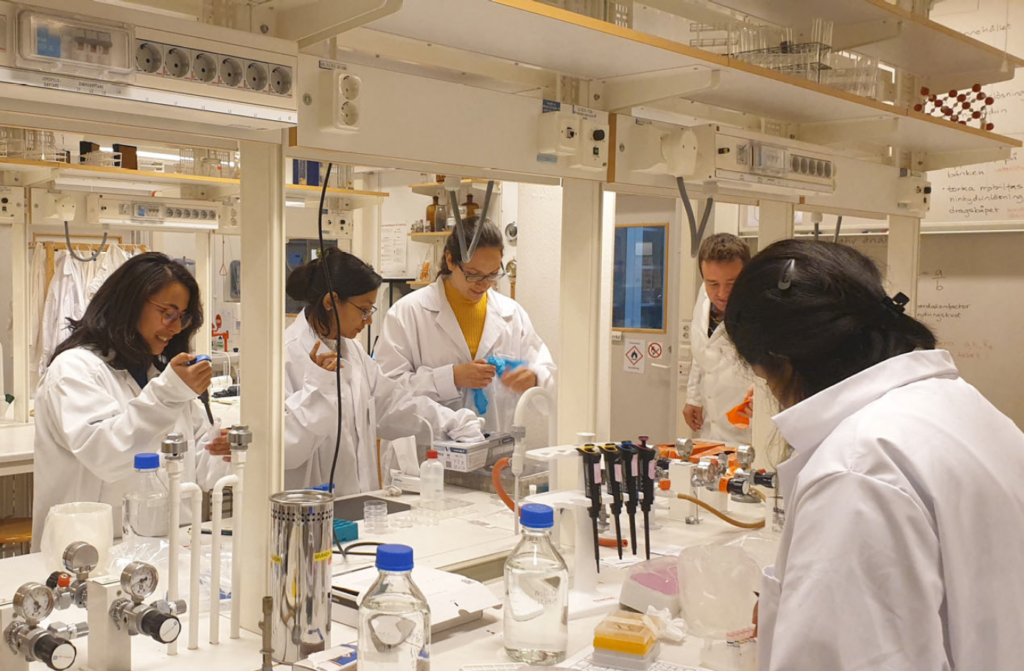
The course was hosted by Sofie Nyström and Per Hammarström (ProLinc, Linköping, Sweden) and spanned three days. The main objective of the course was staining and imaging of amyloid fibrils using fluorescent probes and fluorescence microscopy. The main focus was on hands‐on experience in the lab and at the microscopes using participants’ own samples which included recombinant proteins, cells and tissue sections. Lectures covered theory behind amyloid staining and imaging in model systems and in amyloid diseases.
Course material
The following presentations were given as part of the course. Select the filename to download the file.
Lecture 1 – Amyloid ligands and their fluorescent properties
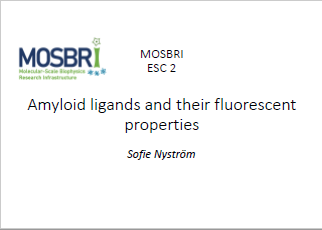
Lecture 2 – Fluorescence imaging techniques
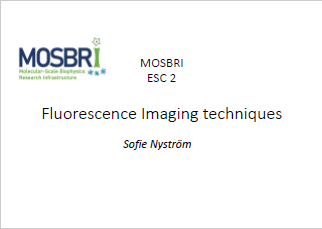
Lecture 3 – The need for probes for amyloid diseases and amyloid polymorphisms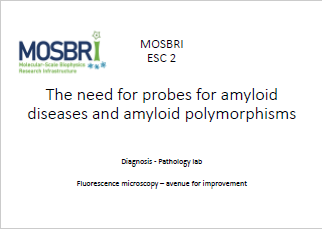
Application to take part in the course
The course is limited to 10 participants and therefore any interested parties will need to submit an application for consideration to take part.
Who is eligible to apply:
Anyone with a workplace/host institution in one of the EU member or associated states may apply to attend this course (this includes people from the UK). Applicants from industry are also welcome. It is expected that the applicant has at least a basic knowledge of molecular biology, chemistry and/or biophysics and that it is applicable to their area of research/work. Applications from scientists in the early-stage of their career are particularly encouraged and we will strive to obtain a gender balance of the participants in the course.
How to apply:
The application consists of:
- submission of a completed course application form which includes:
- motivation for attendance
- a short scientific CV
- if you are a student or postdoc, a reference letter.
Once the application period is closed, all submissions will be reviewed and the applicants will be informed of the outcome.
When to apply:
It is no longer possible to apply for this course. The applications received are under review and applicants will be informed once a decision has been made.
Application deadline:
The deadline for submission of an application to participate in this course is: 19th April 2022 29th April 2022 .
